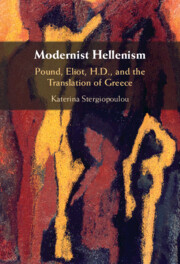Book contents
Bibliography
Published online by Cambridge University Press: 21 November 2024
- Type
- Chapter
- Information
- Modernist HellenismPound, Eliot, H.D., and the Translation of Greece, pp. 464 - 481Publisher: Cambridge University PressPrint publication year: 2024

